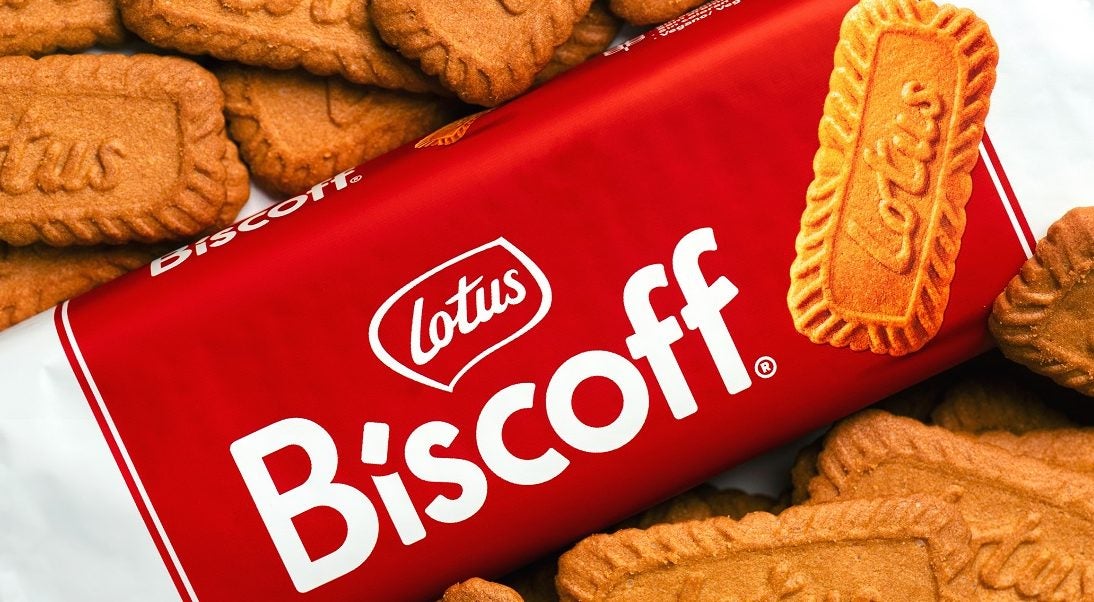

Alongside our daily news coverage, features and interviews, the Just Food team sifts through data sets to bring you a round-up of the week in numbers.
Mondelez International and Lotus Bakeries are both seeking to increase biscuit sales in India through a new agreement but also further afield in Europe.
The partnership will see the US snacks giant manufacture the Biscoff brand on behalf of Belgium-based Lotus in India to tap into growing appetite in the south Asia country.
In dairy, Saputo plans to close more processing plants in the US under a network optimisation drive that has also encompassed consolidation in the Canadian behemoth’s Australian operations.
Also in dairy, DMK, Germany’s largest cooperative, cited declining milk production volumes for its decision to close a local processing site and downsize three others.
Meanwhile, sandwiches were in vogue in Spain, as Grupo Ñaming saw its majority ownership swap into fresh private-equity hands.
Access the most comprehensive Company Profiles
on the market, powered by GlobalData. Save hours of research. Gain competitive edge.

Company Profile – free
sample
Your download email will arrive shortly
We are confident about the
unique
quality of our Company Profiles. However, we want you to make the most
beneficial
decision for your business, so we offer a free sample that you can download by
submitting the below form
By GlobalData
Mondelez biscuit grab
Biscoff, a key revenue growth driver for Lotus Bakeries, will now be produced, marketed and sold in India through Mondelez’s own resource network as the two food companies inked a dual-pronged agreement.
As an additional benefit to both food companies, the two will also collaborate on new product development, incorporating some of the US snacking giant’s reputable chocolate names with Lotus Bakeries’ “secret ingredient mix”.
Lotus Bakeries global group revenue increased 21% last year to cross the €1bn ($1.06bn) barrier for the first time. The Lotus Biscoff range notched up growth of 20%, taking the CAGR from 2013-23 to 16%.
A spokesperson for the Belgian business confirmed Lotus Biscoff was first launched in India around 15 years ago, adding that in 2023 the country accounted for 0.2% of the company’s overall group sales.
Manufacturing for the India market is currently carried out at Lotus Bakeries’ Lembeke plant in Belgium, while distribution is conducted through a local partner, the spokesperson said.
India is a key growth market for Mondelez, sitting within its Asia, Middle East and Africa business segment, where net revenue increased 4.6% last year to $7.08bn.
Dirk Van de Put, CEO of Mondelez, said the Biscoff brand “already has a loyal following” in India.
“This partnership will help accelerate our strategic focus on the cookies category by introducing a premium brand that is widely loved in numerous markets to a much wider audience,” he said.
Lotus Bakeries CEO Jan Boone added: “We look forward to building on their [Mondelez’s] commercial expertise and market-specific knowledge and presence in India, and we believe now is the right time to expand our distribution in this growing market.
Saputo plant cull
Alongside the Canadian dairy major’s annual results, Saputo revealed another round of US plant closures.
A total of six facilities will be shuttered through to the early part of next year, two of which, in Belmont, Wisconsin, and Big Stone, South Dakota, have already shut their doors.
Carl Colizza, the COO who is set to replace Lino Saputo Jr. as president and CEO in August, said sites in Green Bay, Wisconsin, and South Gate, California, are also destined to be closed, along with the previously announced demise of a pair of plants in Lancaster, Wisconsin, and Tulare in California.
Colizza said the closures will “contribute to reducing our duplicate costs in our network”. At the same time, Saputo is concurrently engaged in several capital projects focused on supporting US growth, including establishing new facilities and adding capacity in key product categories.
Annual revenue across the Saputo business and in the US market declined in its 2024 fiscal year by similar amounts in absolute Canadian dollar terms.
Despite the pressure on sales, Mr Saputo described the year as one of “continued resilience”.
He added: “Our financial performance reflected our ability to stay the course even amidst a dynamic macro-economic environment, which included commodity price volatility, a challenged consumer and ongoing inflationary pressures.
“It was also a year of continued progress where, after three years of investing in and optimising our global network, we have now completed the bulk of the major capital projects under our Global Strategic Plan and we are ramping up commercial production at several of our facilities.”
DMK downsizes
The dairy major plans to close its site in Dargun in north-eastern Germany, while facilities in Edewecht, Hohenwestedt and Everswinkel will be scaled down by the first quarter of next year.
DMK said it had no alternative but to make the changes, adding that mainly “standard products” are processed at the affected sites as opposed to higher-value lines. That make-up of products, combined with an expected decrease in milk volumes, has led to the “adjustment plans”.
In a statement, DMK said it is “reacting to regionally changing raw material volumes and is also taking aspects of value-adding product range development into account in this planning”.
DMK said around 150 employees will be impacted by the plant measures, adding the co-op aims to optimise its network of production facilities.
“These capacities are determined by the interplay of three factors: the volume of milk per region as well as demand and capacity at plant level. Depending on these factors, the plant structure and product portfolio must be constantly optimised to achieve the highest possible value for the processed raw milk,” DMK explained.
“This also includes strengthening products with higher added value and reducing those with lower returns.”
Ñaming impulse
Sandwiches-to-smoothies maker Grupo Ñaming has attracted new majority ownership in a deal its CEO Jorge Miranda said “represents an important impulse” for growth.
The undisclosed stake will now move into the field of Italy’s DeA Capital from existing investor Talde Private Equity in Spain. Miranda, a member of the founding family, has reinvested in the company and remains a minority shareholder.
DeA Capital said Grupo Ñaming, based in Mallén in northern Spain, generates a turnover of €40.5m ($43.6m). The company has a second factory in Madrid and also produces wraps, salads and desserts.
The Grupo Ñaming acquisition is DeA Capital’s third investment in Spain. Its portfolio in the country includes baby food and plant-based dairy specialist Alimentación y Nutrición Familiar.
DeA Capital is part of the family-owned Italian conglomerate De Agostini Group, which also has interests in sectors including publishing and gaming.

